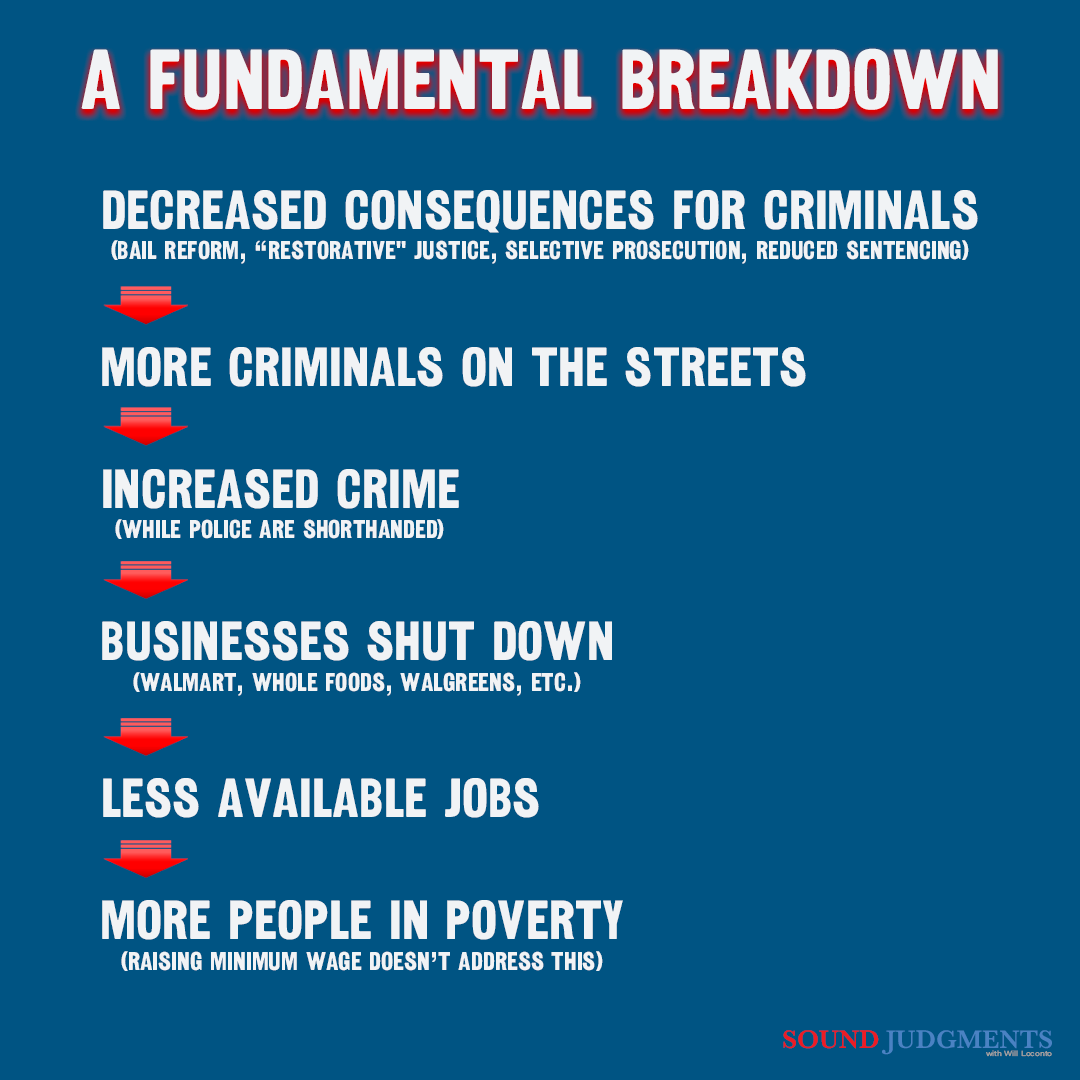It’s not rocket science. This is unsustainable.
America’s Fundamental Breakdown - Part 2 is available here.
A bare minimum ask of city government is to provide safe streets for taxpayers, businesses, and property owners. Unfortunately, sometimes it seems like we have given up. Soft-on-crime policies have significant consequences.
With organized crime rings targeting retail and drug addicts camping outside storefronts, it’s no wonder businesses are closing their stores.
Chicago: Walmart closes 4 Chicago locations permanently
San Francisco: Whole Foods to close San Francisco flagship store a year after opening.
While high-profile store closings are the most visible, property crime substantially affects small businesses.
Los Angeles: Tarzana small businesses shutting down due to relentless crime.
New York: Retail theft rises, and N.Y.C. small business owners are paying the price.
In an environment where consequences for crime are decreasing, and in-store security guards are legally hamstrung regarding what they are allowed to do to protect their stores, it’s a losing situation for business owners.
Policies prioritizing concepts like “equity,” “restorative justice,” and “de-carceration” take us down the wrong path. Enabling habitual criminality is dangerous.
In New York City, thousands of crimes have been committed by just 327 people. The simplest solution would be to keep career criminals off the streets. Criminals shouldn’t be treated as victims.
All the “equity” in the world won’t stop crime. Solutions are available. What’s missing is political will.




